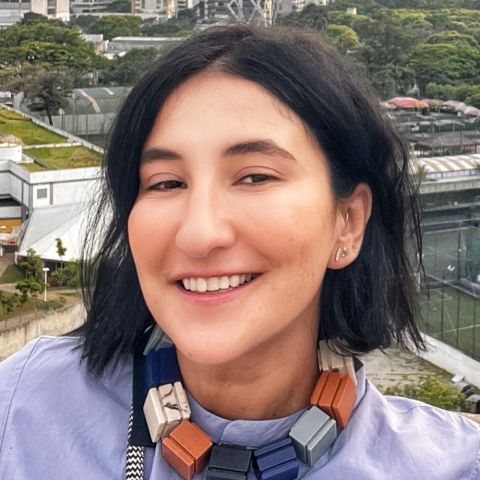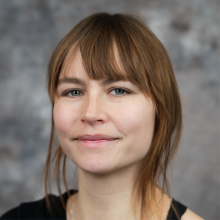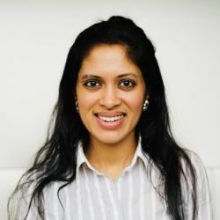Infection and Immunity
INFECTION AND IMMUNITY
| Faculty | Research Area(s) |
|---|---|
 Craig Altier | Infection/agent; molecular basis of Salmonella pathogenesis; the genetic and environmental control of epithelial cell invasion |
| In my lab we seek to understand the dynamics of biological populations and epidemics, focusing on how to bring experimental and observational data together with mathematical theory. Tackling biological questions of public application and importance. The lab ongoing research falls into the following themes: (i) pathogen evolution and phylodynamics; (ii) seasonal disease transmission; (iii) anthropogenic effects (e.g. vaccines); (iv) adaptive behavior. | |
| Pioneering new methods to detect horizontal gene transfer in natural microbial communities to understand the rate and triggers of horizontal gene transfer; the impact of human microbiome diversity on world global health issues - lab |
 Nicolas Buchon | Host/microbe relationships and control of intestinal stem cell behavior in homeostasis and disease - lab |
 Sarah Caddy | understanding the protective activity of non-neutralising antibodies; unravel the negative activities of antiviral antibodies; maternal antibodies - lab |
| Arbovirus-host interactions, discovery of host restriction and pro-viral factors, RNA biology of viruses and host cells, mechanisms of viral emergence, epidemic preparedness. - lab
|
 Pamela Chang | Immunity/host; host/microbe interactions; gut microbiome - lab |
 Yung-Fu Chang | Infection/agent; mechanisms of infection, particularly leptospira and salmonella |
 Soon Hon Cheong | Cellular and molecular medicine; developmental and reproductive biology; infectious diseases; population medicine and epidemiology; structural and functional biology - lab |
 Aimee Colbath | therapeutic interventions for musculoskeletal disease including osteoarthritis, fracture repair and tendon/ligament disease |
 Ruth Collins | Infection/agent; pharmacology; cancer cell biology; small GTPase regulation of intracellular traffic and cellular growth control - lab |
 Brian Crane | Protein redox chemistry; electron-transfer reactions; mechanisms of signal transduction; circadian clocks; protein photosensors; bacterial chemotaxis; receptor signaling; nitric oxide enzymology; metallobiochemistry - lab
|
 Kevin Cummings | Application of epidemiologic approaches to investigate the ecology and transmission of Salmonella and other foodborne pathogens among a wide variety of hosts |
 Susan Daniel | Dr. Daniel leads a research group of biomolecular engineers working to understand cell membrane functions and the biological processes that happen within them. Her group pioneered the use of “cell-free” biomembrane platforms for re-creating cellular processes on chip. Much of the work they do has impact in human health or advancing biotechnologies for the good of humankind. |
 Matthew DeLisa | Infection/agent; molecular biotechnology; protein biogenesis and folding pathways; protein engineering - lab |
 Diego Diel | To understand the molecular mechanisms underlying virus-host interactions, focusing on the mechanisms underlying viral immune evasion that contribute to virus virulence and disease pathogenesis - Lab |
 Mariana Diel de Amorim | equine theriogenology; equine maternal recognition of pregnancy; equine endometritis |
 Tobias Doerr | Cell envelope biology of Gram-negative pathogens, antibiotic resistance, tolerance and mechanism of action; microbial stress responses - lab |
 Anushka Dongre | Epithelial-Mesenchymal Transition as a driver of resistance to anti-tumor immunity - lab |
 Maria Julia Bevilaqua Felippe | Immunity/host; cellular and molecular mechanisms involved in B cell response; neonatal immunology and response to vaccination; immunomodulation using biologic response modifiers; cancer immunotherapy; characterization of primary and secondary immunodeficiencies - lab |
 Julia Finkelstein | To elucidate the role of iron, vitamin B12, and folate in the etiology of anemia and adverse pregnancy outcomes, and inform the development of interventions to improve the health of mothers and young children |
 Andrew Flyak Andrew Flyak | human antibody response to viral pathogens; use immunologic and biochemistry assays and use structural biology techniques to “see” how antibodies bind and neutralize viral pathogens - Lab |
 Deborah Fowell | Regulation of immunity at tissue sites of infection and autoimmunity, immune imaging, intravital multiphoton microscopy |
| I investigate what drives hosts’ contributions to pathogen dynamics across biological scales, from host-pathogen molecular interactions to host species interactions. To do so, I combine theoretical, observational, and experimental approaches, and consider various study systems in the lab and in the field, including emerging bat-borne viruses and their hosts, and bacterial pathogens of endangered seabirds. I collaborate with stakeholders to translate scientific outputs into sustainable, targeted solutions against pathogen threats, with the focus on ecological interventions. | |
 Mason Jager Mason Jager | host-pathogen interactions with a specific emphasis on viral pathogenesis; association of novel viruses with clinical disease; use traditional pathology, molecular virology, and cell biology to study virus distribution, tissue tropism, and host factors required for disease progression |
 Shaoyi Jiang Shaoyi Jiang | design and development of functional zwitterionic materials for biomedical and engineering applications |
 Toshi Kawate | Structures and mechanisms of membrane proteins that regulate extracellular signaling |
 Satoshi Kimura | Kimura lab focuses on translation mechanisms in bacterial pathogens. |
 Colleen Lau Colleen Lau | NK cells adaptive features to explore immune memory in context of classic antigen-dependent and antigen-independent memory responses. Multi-omic approaches with genetic mouse models to interrogate in vivo, in vitro, and in silico to generate an immune memory program. - Lab |
 Brian Lazzaro | The evolutionary and functional genetics of insect-pathogen interactions - lab |
 Esak Lee | The laboratory is currently focused on further advancing the novel 3D organ-on-chip systems, as well as developing both cellular and molecular tools and in vivo models, to better understand the mechanisms through which cells regulate their response to biological and mechanical cues - lab |
 Cynthia Leifer | Immunity/host; understanding innate immunity from the receptors that detect microbes to how innate immune cells react to changes in their environment during inflammatory processes - lab |
 Sabine Mann | Metabolic diseases and insulin signaling; nutrition; epidemiology; metabolic and nutritional immunology |
 Mandy McGeachy Mandy McGeachy | we are working to understand how Th17 cells develop and are influenced to be ‘good’ or ‘bad’ in their functions - lab |
 Saurabh Mehta | Global health (active research projects in India, East Africa, and Latin America); infectious disease epidemiology, particularly HIV, Tuberculosis, and neglected tropical diseases; nutritional interventions and nutritional modulation of the immune response - lab |
 Colin Parrish | Emergence of new viral diseases in dogs; canine influenza viruses: emergence, spread, and ways to stop the spread; how parvovirus can pass from species to species - lab |
| We are generally interested in genomic stability and chromosome evolution, especially how these are impacted by mobile DNA elements. We have a special interest in molecular mechanisms mobile elements capable of moving between positions in the genome called transposons use to limit damage to the host and maximize the process of horizontal transfer. | |
 Raina Plowright Raina Plowright | studied pathogens that spill over from animals to people, the dynamics of zoonotic pathogens in wildlife populations, and pathogens that threaten wildlife conservation |
 Brian Rudd | Developmental immunology; host response to infection - lab |
 David Russell | Infection/agent; the biology of intracellular infection with emphasis on mycobacteria |
 Luis Schang | Role of cellular protein, lipids, and glycans play in viral infection |
 Jeongmin Song | Host-pathogen interactions; bacterial toxins; Salmonella Typhi; bacterial pathogens - lab |
| Dr. Subramanian’s research focuses on understanding the principles governing cellular heterogeneity, crosstalk, and evolution in the context of human tissues and disease. Her interdisciplinary research program operates at the nexus of high-throughput data measurements, development and application of computational methods, and experimental design, with key collaborations for clinical samples, and mechanistic validations in vivo and in situ. |
 Brian VanderVen | Physiology of the intracellular pathogen M. tuberculosis - lab |
 Haiyuan Yu | The Yu group performs research in the broad areas of Network Systems Biology. We use integrated computational-experimental systems biology approaches to determine protein interactions and complex structures on the scale of the whole cell. In particular, we focus on protein-protein and gene regulatory networks and seek to understand how such intricate systems evolve and how their perturbations lead to human diseases, especially autism spectrum disorder and cancer. |
 Bettina Wagner | Immunity/host; antibody mediated immune mechanisms in infectious disease and vaccination; allergic diseases; neonatal tolerance and allergy predisposition; strategies to develop allergy treatments - lab |
 Gary R. Whittaker | Pathogenesis of influenza viruses, coronaviruses and arenaviruses; host range and receptors; activation of membrane fusion; macrophage- and neuro-tropism; anti-viral therapeutics; diagnostic tests; virus-bacteria co-infections - lab |
 Martin Wiedmann | Infection/agent; molecular pathogenesis of food-borne and zoonotic bacterial diseases |
 Matthias Wieland Matthias Wieland | Milk harvesting process; support science-based development and on-farm implementation of innovative machine technologies and milking routines; epidemiological studies that deliver data to improve profitability and sustainability |
POPULATION & CLINICAL STUDIES
| Faculty | Research Area(s) |
|---|---|
 Rodman Getchell | Molecular diagnostics and emerging diseases of fish; target animal safety studies for new aquaculture therapeutants and chemicals |
 Laura Goodman | Population and clinical studies; Pathogen discovery and surveillance, with focus areas on tick-borne disease and antimicrobial resistance; exploring the underlying mechanisms of infectious disease emergence and identifying biomarkers to detect and prevent emerging threats to humans and animals |
 Renata Ivanek | Epidemiology and ecology of infectious and foodborne diseases; mathematical modeling; spatial epidemiology; risk assessment; public health |
 Daryl V. Nydam | Population and clinical studies; epidemiology of food security/safety issues related to dairy production medicine; study of economically important infectious diseases, particularly zoonoses; subclinical diseases of peraparturient cattle and reproductive efficacy |
 Lorin Warnick | Population and clinical studies; dairy cattle epidemiology; pre-harvest food safety; Salmonellosis in cattle; infectious disease |







